Charles Buxton was one of the original founders of Tower Hamlets Advanced Technology Training (THATT), Whitechapel in 1984 which later became ELATT. He also was part of the team that renovated the Davenant Centre which was one of THATT’s early locations. He left in 1995 to work for VSO and in 2002 moved to Bishkek, Kyrgyzstan to work for Intrac where he still lives. He recently published his book Ragged Trouser NGOs which includes a chapter on the creation of THATT and its first ten years. In Summer 2019 Charles visited ELATT and met some of the current team. Here is his interview with Catherine O’Shea ELATT’s Communications Officer.
Charles Buxton Interview
You were part of the team that founded THATT in 1984. Where did the initial idea come from?
The idea for THATT came from really two directions, one was from the new regime at the GLC which was trying to look at anything that would be progressive and for the benefit of Londoners. They were looking for things that responded to equal opportunities. And the second part of the direction was from the Tower Hamlets Trades Council who in previous years had been very much involved in questions around employment and unemployment and they created a subcommittee on employment and vocational training. At that time everyone was concerned about the quality or lack of quality of some of the government training schemes and that the trade unions were not being consulted as much on training policy.
The people who were involved in this sub-committee were involved in setting up THATT which then became a kind of training project to respond to the ideas from the trade union on one hand and the new GLC and the other.
I read that on the final day of the GLC you were given the money to set up the Davenant Centre.
The money for THATT came through earlier and we were grateful for the help from the Greater London Training Board in that first year. I was the development worker for the working group so I got a little bit of money to work on it a few days a week, and then suddenly we got 10 staff and started with 25 trainees. That was a big budget for full time training and the GLC helped us because the European money always came in late. The first year the GLC paid the money up front and then we paid them back later when the money from the EU came through.
THATT came through and we were very much helped by the GLC, but the other project, the Davenant Centre, was quite important as well. At the same time as doing the development work for THATT, I was also working on the Davenant Centre as well, and that one came through much later because there were all these architectural issues and plans to be sorted out. We got that cheque on the eve of the abolition of the GLC and then we were landed with a big problem because the people who had sponsored that renovation project then went out of business and we went over budget which is quite normal. You know we had no extra money for the overspend.
Was the plan always that THATT would be one of the organisations in the Davenant Centre?
Yes, because the Davenant Centre was set up as a consortium and that was written into the constitution, so there were 5 or 6 organisations each of which sent two people to the management committee and there wasn’t any provision for new members. We did that later when 3 or 4 of the original groups couldn’t take up paid space and we filled them with people who paid, but they didn’t become members of the management committee.
Who were the students in the initial classes of THATT?
The students were a great group and, as it says in the book, they helped us to develop the centre physically, testing out the equipment, setting up the library, taking on the cleaning. People were collectively joined up with the National Union of Students. We met every week for a meeting. And one of the things I remember is that we had 3 students with quite significant disabilities and taking them on was a considerable statement about wanting to include people with disabilities. They really got something out of it and they put something in as well.
The trainers in many cases were new to training in general. They might have known about computers or electronics and in general the students were very constructive.
That’s mirrored in what we do now where we have volunteer students helping in every part of ELATT. So many of the core principles of ELATT were there in what you describe in the book. It particularly struck me that the requirement for 50% women and 50% BAME staff was built into the original plan.
I think that was a very important thing and it was a political decision. We were very aware of issues around race and gender. A lot of people came from the community side, and then there were people from the technical side but not on the management committee. The management committee was very dominated by community and political issues. At that time, we were reluctant to have employer reps although we did get them over time. While I was there, there weren’t so many employers involved. We never had a problem getting women and BAME people involved and we quickly became known in the network for that. And nor did we join in the government schemes you would take people with the highest qualifications. We interviewed for positions at ELATT but it wasn’t just on the basis of a CV. We employed people if they were around about the right level and showed interest.
What kind of jobs did students go onto do?
The majority of people were going into office work. We had foreseen micro-electronics from the start but that was a bit more difficult. A lot of the women went into further education, our women into technology course was a route into polytechnic and university courses. The majority went into computer and office type work. Having been in a training scheme for a year they had more confidence and recent experience of communicating and coming into a job every day. THATT services also helped a lot because they began to do different database jobs for public and private employers and so made contacts for our trainees.
Was ESOL teaching a specific part of the provision?
English and maths, including ESOL was there from the start, it was part of the philosophy. All the needs of trainees and basic educational qualifications are important for everyone and it was quite surprising how many of the people who came forward didn’t have English or maths GCSEs. It was a really important part of the project that from September to July you could do a course and in that time gain GCSEs. A lot of the people at that time really felt a lack. And then the English classes became very important for discussions of all times. And there were also students from refugee communities who couldn’t go for the GCSE straight away so they did an ESOL course. We had a lot of part time teachers from the Further Education sector. There was just one coordinator on a full-time salary and the other teachers were all hourly paid.
We tried to keep things connected, for example our English language teachers became very expert in technical language.
What did you learn about management in that time as a coordinator?
When I started developing the project for THATT I was just 31 or 32 years old. I think the essence of it was that we did have a very committed set of staff and that we were able to work as a collective, the workers management group were able to take on a range of tasks and it was a very satisfying experience. We had to run the management committee, we had to run the budgeting. We had to set up a staff management system and an appraisal system.
We were very lucky we had such a committed committee and I had such strong support from them. That helped a lot. We also had two or three rounds of consultants coming in and helping us, promoted by some of the government schemes, reconstruction schemes who wanted us to become more business-like.
How does ELATT compare to what you imagined?
When I first came back to ELATT and it was on Kingsland Road I thought that that was great. What a great place to be and being able to make renovations. I was impressed by the advancements that Anthony and the team had made with the help of Matthew Wintersgill. We had moved around different centres and never owned so that was a big step forward.
It has a great future, the technological and employment sector is very much in demand will be. The problems of competing for jobs especially in more advanced industries, it’s an area of needs and opportunities where ELATT can play a big role in giving people the qualifications they need, the technical skills and the confidence to get those jobs.





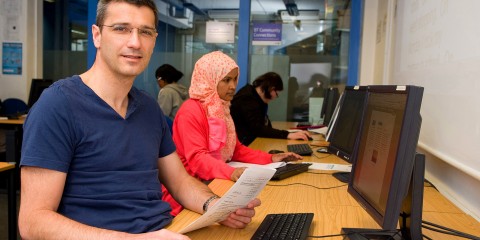
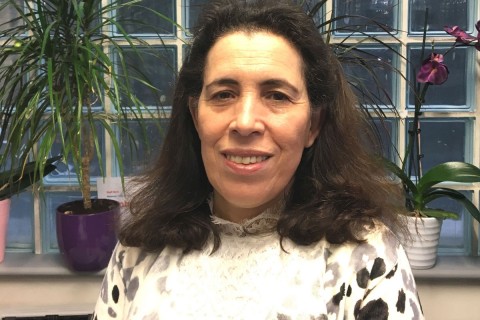
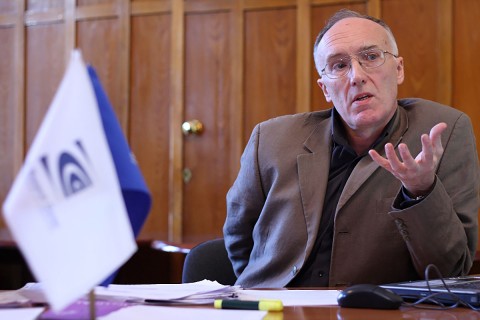

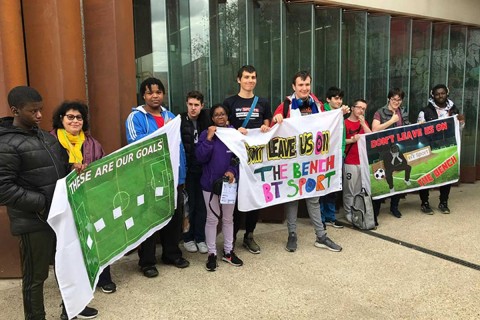
 Our vision is a London where everyone can flourish in their lives, no matter their age, background or circumstances. When it comes to learning, we’ve got it covered, but our students tell us that the missing link to help them progress is work experience.
Our vision is a London where everyone can flourish in their lives, no matter their age, background or circumstances. When it comes to learning, we’ve got it covered, but our students tell us that the missing link to help them progress is work experience.

 Elatt has been shortlisted for the Training Provider of the Year award. Elatt have been shortlisted for these awards every year for the last four years. Elatt is based in Haggerston and delivers English, IT and a range of programmes for young people and adults, including refugees and migrants across five London boroughs. Elatt previously won Training Provider of the Year in 2016 as well as awards for Overall FE Provider and Employer Engagement. Last year Elatt won the award for Contribution to the Local Community.
Elatt has been shortlisted for the Training Provider of the Year award. Elatt have been shortlisted for these awards every year for the last four years. Elatt is based in Haggerston and delivers English, IT and a range of programmes for young people and adults, including refugees and migrants across five London boroughs. Elatt previously won Training Provider of the Year in 2016 as well as awards for Overall FE Provider and Employer Engagement. Last year Elatt won the award for Contribution to the Local Community.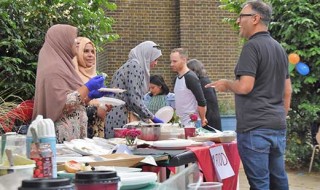 Lola, a current ESOL student said
Lola, a current ESOL student said